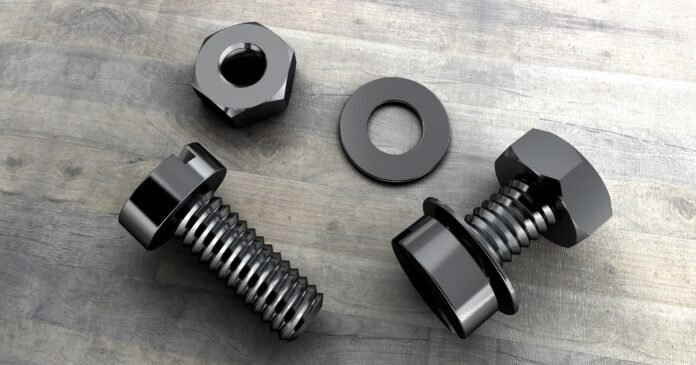Last Updated on March 7, 2024 by Nasir Hanif
In the realm of fasteners, bolts and screws stand as indispensable tools, serving a multitude of purposes across various industries, construction projects, and everyday applications. While they might seem similar, these fasteners possess distinct characteristics and are designed for specific functions. Understanding when to use bolts and screws is crucial for ensuring structural integrity, stability, and durability in any project or application.
Table of Contents
Differentiating Bolts and Screws
At first glance, bolts and screws might appear similar, both being cylindrical with threading, but their design and intended applications set them apart. Bolts typically feature a plain, unthreaded shaft and require a nut to secure components together. On the other hand, screws possess threading along their entire shaft and are designed to be inserted directly into a pre-threaded hole or material, creating their own securing mechanism.
When to Use Bolts
Bolts are ideal for applications that require strong, durable, and load-bearing connections. Their design, requiring a nut and washer, allows for adjustable tension and provides a more robust hold compared to screws. Bolts are commonly employed in structural assemblies, heavy machinery, automotive components, and construction projects where the primary focus is on creating a secure, tight joint capable of withstanding substantial loads and vibrations.
Types of Bolts and Their Applications
Various types of bolts cater to specific needs and applications. For instance, hex bolts, with their hexagonal heads, are widely used in construction and industrial settings. Carriage bolts, recognized by their smooth, rounded heads and square necks, are often utilized in wood-to-metal fastening applications. Additionally, anchor bolts find their place in securing structures to concrete or masonry, offering stability and support in building foundations.
When to Use Screws
Screws, owing to their self-tapping design and diverse threading profiles, are versatile fasteners suitable for a myriad of applications. They are commonly employed in woodworking, furniture assembly, electronics, and general household fixtures. Screws create strong connections in materials such as wood, plastic, and metal, relying on their threading to grip and hold components firmly in place without the need for additional nuts or washers.
Types of Screws and Their Applications
Screws come in various types and sizes, each tailored to specific functions. Wood screws, characterized by their coarse threading and sharp points, are primarily used in woodworking projects to secure wooden components. Machine screws, with finer threads, are suited for fastening metal parts and machinery. Self-tapping screws excel in creating threads in materials like plastic or metal without requiring pre-drilled holes.
Considerations for Selection
Choosing between bolts and screws involves considering several factors. The nature of the materials being fastened, the load-bearing requirements, environmental conditions, and the desired level of disassembly are critical considerations. Bolts are preferable for applications requiring higher tensile strength and heavy-duty connections, while screws offer convenience, especially in applications where frequent disassembly or reassembly is anticipated.
Conclusion
In the world of fasteners, bolts and screws play pivotal roles, each with its unique characteristics and applications. Understanding their differences and knowing when to use bolts and screws is essential for achieving secure and durable connections in various projects and applications. Whether it’s constructing a sturdy frame, assembling furniture, or securing intricate machinery, the appropriate choice between bolts and screws ensures the reliability and longevity of the final product. Contact us for more information on RCF Bolt.


























